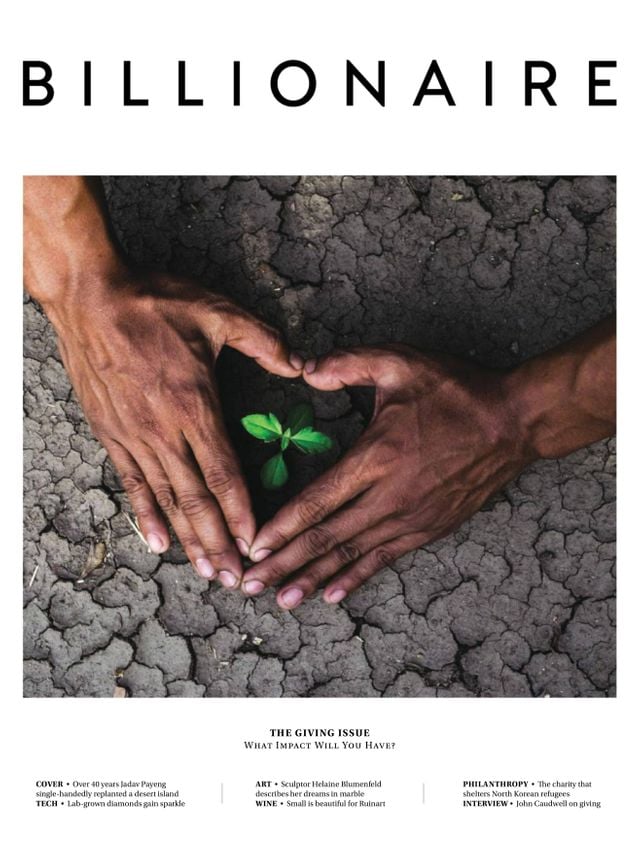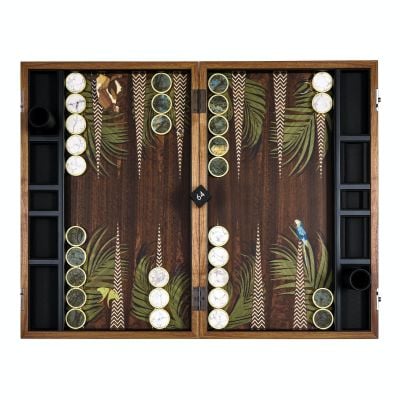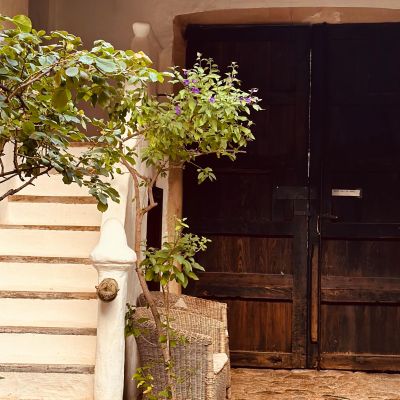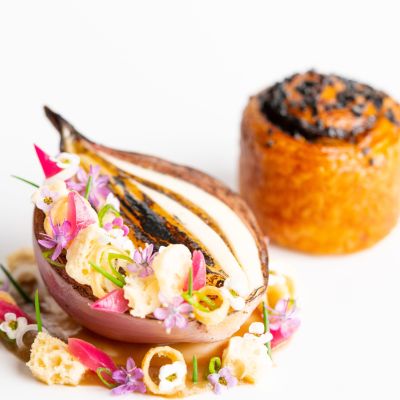Alila Yangshuo: Sweet Abandon
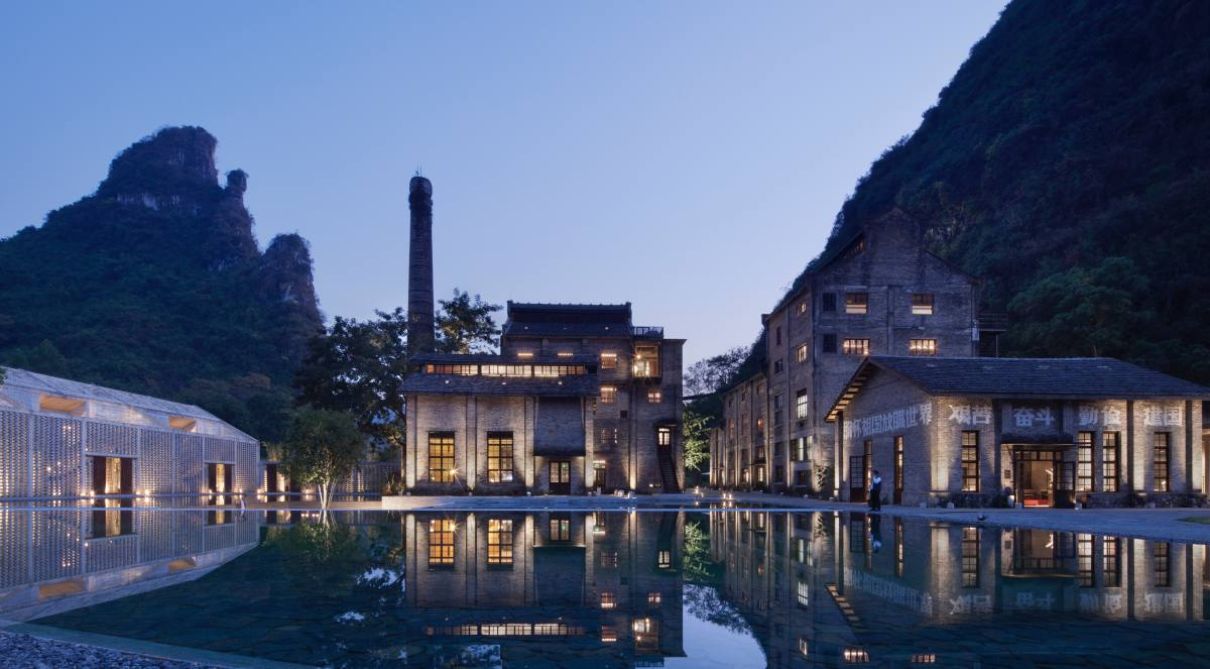
A renovated 1960s sugar mill on the banks of the Yangshuo river, overlooked by a gigantic karst mountain range, forms the basis of Alila Hotel’s most poetic property yet.

It’s one of those rare places that makes you feel at once humble and empowered. Yangshuo, with its UNESCO-protected karst mountain range, is another world, another planet.
Driving through the verdant landscape, the mountains rise on all sides as far as the eye can see, like enormous silent sentries. They have watched the world come and go for 200 million years or so, and they’re not going anywhere.
It’s a suitable backdrop for a story of immovability, determination and conservation at any cost, which forms the basis of Alila Hotel’s most poetic property.
On the banks of the winding Li River, framed by the towering, elegant fans of phoenix-tail bamboo, lies Alila Yangshuo. A 50-year-old former sugar-processing mill established in the late 1960s, the state-owned mill processed the raw sugar that was brought up the River Li by boat. In 2008, in order to protect the riverbed, the mill was shut down.
A beautiful relict of a bygone time, for months the building stood abandoned. Plans were hatched to raze the buildings and develop the land. A local entrepreneur, Ms Luo, was so vehemently opposed to the destruction of this historic icon that she organised a group of locals to physically stand in front of the building in protest. The blockade worked, and this piece of architectural history remained intact.
Ms Luo subsequently became a stakeholder in the old sugar mill, along with four other owners. Ten years ago, they were approached by Alila Hotels, which has been aggressively expanding in China, and so began a painstaking renovation.
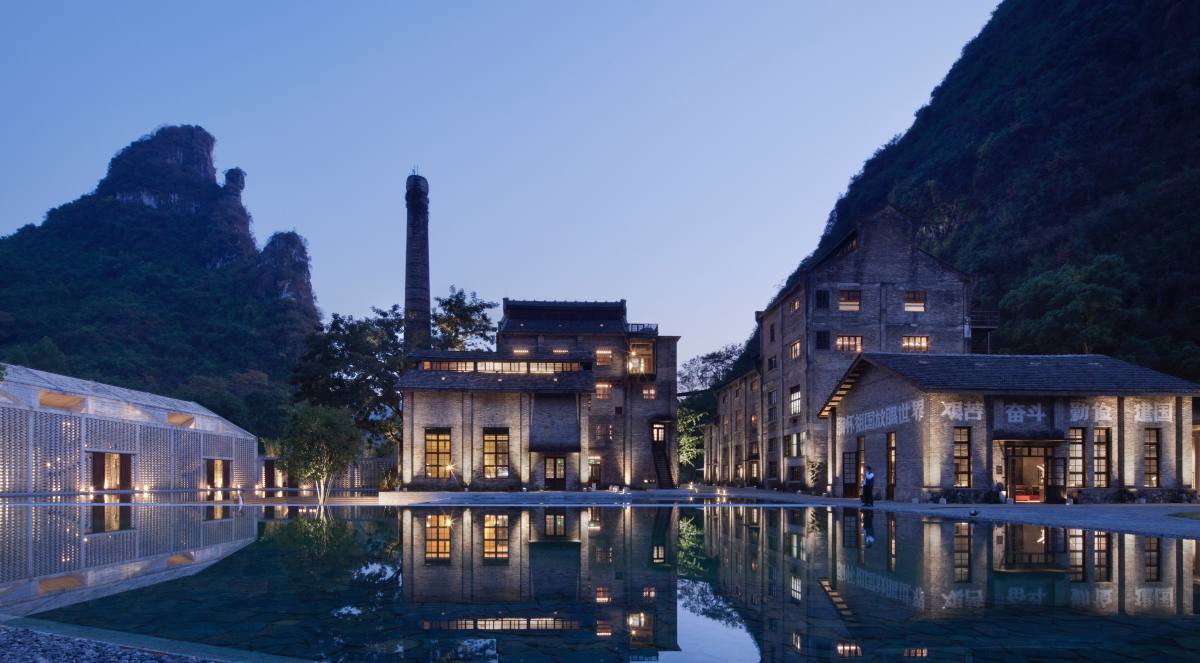
Visit the hotel today and the façade of the original buildings are unchanged. A shallow moat encircles the red-brick structures, reflecting them like a mirror. Adjacent to the old buildings is a new property that houses the 117 guest rooms and suites. Designed by Dong Gong of Vector Architects with interiors by award-winning Ju Bin of Horizontal Space Design, the vision of Alila Yangshuo is to integrate the new with the old. Constructed from 60,000 handmade hollow local limestone bricks, interspersed with winding bamboo sculptures, the new building is a nod to the limestone karst mountains, fringed with bamboo forests.
Venture into the old buildings and you will find them full of quirky artworks. These are owned by one of the owners, Mr Yang Senior (his brother, Mr Yang Junior, also owns a stake). He says the building informed his choice of artwork, and you can tell. The intricately carved tribal wood sculpture on the wall of lobby are by a Chinese artist named Wu Wei, complimenting a duo of cloudy abstract paintings by an artist named Jiang Dahai.
In the restaurant, wooden sculptures by Wu Wei gaze down upon diners, depicting rock climbers and families alike. Furniture throughout the rooms and open spaces are sourced from quirky designers including Maxmarko, Lost & Found and Camerich.
Indeed, the buildings are works of art in themselves. The original aesthetic has been preserved as much as possible, down to propaganda slogans from the Mao era, which have been kept on the industrial brick walls as a kind of historical graffiti. In the restaurant the 50-year-old brickwork is beautifully exposed, while warm teak wooden beams line the ceiling. Parts of the original processing, pressing and refining equipment are visible in the bar. The extensive cocktail menu here is inspired by themes of sugar and rum.
Mr Yang says his favourite spot in the hotel is the swimming pool, and it’s not hard to see why. The original sugarcane dock, where machinery once heaved the heavy sacks of sugar from river to the bank, has been transformed into a swimming pool. With its unique angular structure and its view of the meandering River Li, dips don’t get much more dramatic.
This article originally appeared in Billionaire's Discovery Issue, September 2018. To subscribe contact

